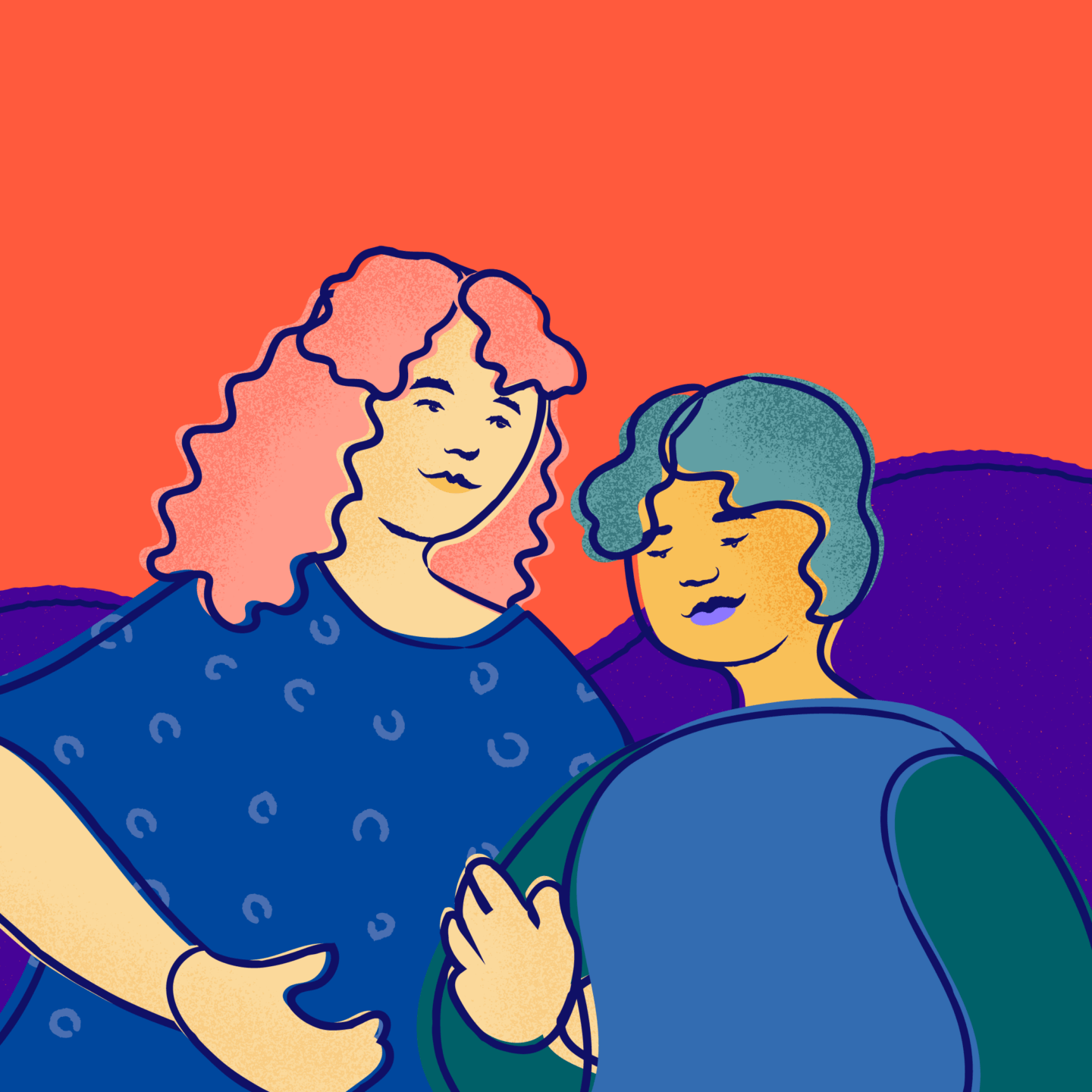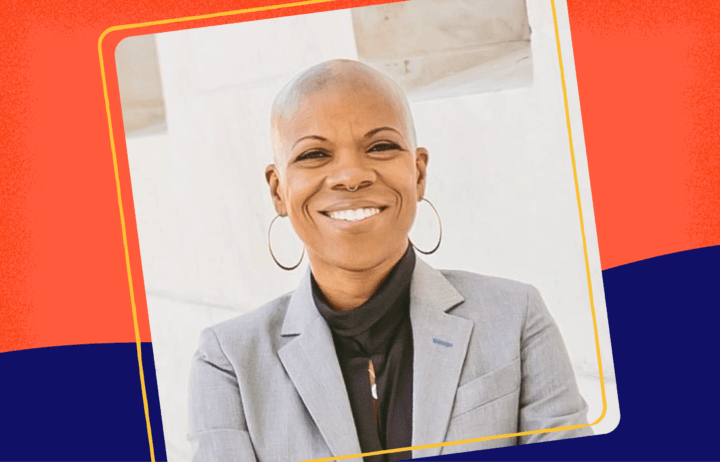Youth's Lives Every Day
Many of us may think of the obligatory V-Day dinners with a romantic partner and exchanging candy at work and school, but we don’t often think about affirming love during the holiday. During the first week of February, The Trevor Project invited ten incredible LGBTQ+ young people on set in Pasadena to capture their stories for our 2024 Pride campaign. Members of the content team had the opportunity to film with, talk with, and laugh with these trailblazing young people hailing from Albany to Jacksonville, Milwaukee to Nashville, Philadelphia to San Diego.
Directing the interviews for our social room, I had a unique opportunity to spend an hour with each of these young people to hear their stories. One story struck us during the casting: the story of Julia (she/they) and their mentor Holly (she/her). This pair met when they both attended a hearing to testify against the banning of affirming books in public libraries. (I was dismayed to hear that one of my personal favorites, “The Perks of Being a Wallflower,” instrumental to my coming out, was among them.) In her interview, Holly, who is a mother and ally to the LGBTQ+ community, simply said she showed up because she wanted to build a brighter future for kids like Julia, and her own kids when they grow up. Holly’s story really captured the spirit of Valentine’s Day for me; this affirming support was a through-line for many of the stories these incredible young people shared.
I sat in these interviews in genuine awe of young people who so clearly knew who they were and what they wanted. How could they be brave enough to know who they are, and follow through on it? A common thread was a supportive adult: the parent to have candid (maybe even uncomfortable) conversations with, the chosen parents who are always there with a reminder to seize the day, the supportive teacher who will advocate to the school administration.
As I think back on Valentine’s Day when I was their age, picking out Valentine’s Day gifts for the girls I thought I should like back (hot chocolate mix from Tim Horton’s being one of my low points), I couldn’t help but feel proud and a little envious of these young people. Of their confidence, their desire to claim their space, to trust that a net would appear. For many of them, they have that safety, and that safety allows them to be the incredible change makers they are: inventing apps, interning on Capitol Hill, starting nonprofits, organizing protests against bad policy. It reminds me that Trevor is that 24/7 support network: a place to turn for every single LGBTQ+ young person, any time of day. Supportive adults aren’t always there. That’s why Trevor must be.
Show that love today with a Valentine’s Day gift to all of the LGBTQ+ young people out there who need support to be who they were meant to be.


